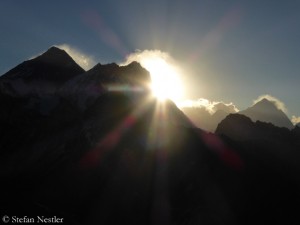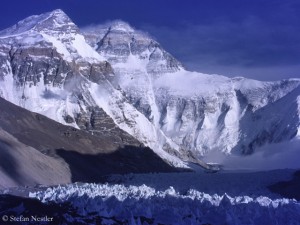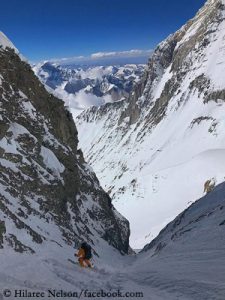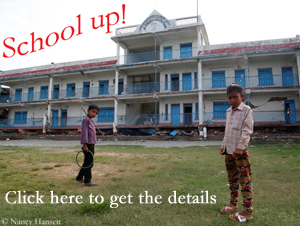That’s not on!
In the next few days there will surely be a lot of success reports on the eight-thousanders. Before we switch to the congratulation mode, unfortunately, we have to bring up some painful objects of commercial climbing. I’m really not a moralizer, but some news from the last few days have raised my concern – especially today’s tweet by Tim Mosedale. “Ronnie & Pemba have arrived at Lhotse high camp to find that some scumbags have nicked the supply of oxygen. Completely unacceptable”, writes the British expedition leader, who summited Mount Everest on Wednesday for the sixth time. And he sent another tweet: “Stealing Os jeopardises lives of other climbers. If it’s an emergency let us know and of course we’ll help. Taking it is utterly disgraceful.” It’s really shocking, absolutely negligent and inexcusable that egoism on the mountain goes so far that even oxygen bottles are stolen. This does not show the attitude of some (hopefully only a few) climbers on the highest mountains on earth in a very favourable light. This also applies to what happened in the failed summit attempt on Kangchenjunga last Tuesday.
Incorrect information in the highest camp
The Australian Chris Jensen Burke reports in her blog, a leader of another group had told them in the last camp below the summit that ropes had been fixed up to 8,100 meters on the previous day. Therefore it would not be necessary to take all ropes available in the camp, he added – and that no Sherpas would have to ascend long before the clients of the commercial expeditions. Half a day later this turned out to be simply wrong. As a result, there was a “conga-line” (Chris) at an altitude of about 8,000 meters: ahead the Sherpas, who still had to secure the route, behind them the summit aspirants of the different teams. Then, in consequence of the incorrect information at the high camp, the ropes ran out. The summit attempt had to be abandoned, all climbers descended.
No trace of appreciation
“Why were we given incorrect information?,” Chris Jensen Burke asks. “I have to believe inexperience played a key part, and there must have been no appreciation by the chap of the consequences.” No trace of teamwork. However, also the comment of a client quoted by Chris make me shake my head: “If a route setter knows climbers are coming up behind them, they should move faster.” These words are short of any respect for the work of the Sherpas. And the question must be allowed: What’s about the self-responsibility of the clients?
Among those who turned back on Kangchenjunga were the three Nepalese Maya Sherpa, Pasang Lhamu Sherpa Akita and Dawa Yangzum Sherpa. Today they decided to leave the mountain because of the rather bad weather forecasts. “It’s clearly a very disappointing decision, and we would obviously wish that we could return with a summit,” the Sherpani trio wrote on Facebook.










